““The U.S. is a chosen country, an evangelical country, and if Americans don’t take God out of there, God won’t leave.””
By Jandira Queiroz, on January 26, 2013
Jandira Queiroz is a research fellow at Political Research Associates and a longtime reproductive and LGBTQ rights advocate in Brazil.
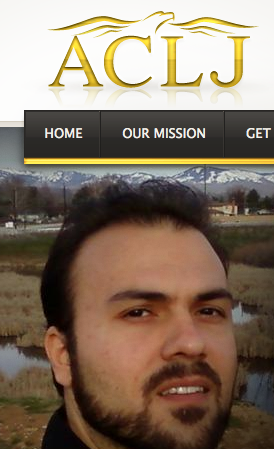 From a modest building in a central neighborhood in Goiânia, the capital of the Brazilian state of Goiás, Filipe Coelho is launching the American Center for Law and Justice’s (ACLJ) Brazilian branch, following the example of the Christian Right organization’s offices in Eastern Europe and Africa.
From a modest building in a central neighborhood in Goiânia, the capital of the Brazilian state of Goiás, Filipe Coelho is launching the American Center for Law and Justice’s (ACLJ) Brazilian branch, following the example of the Christian Right organization’s offices in Eastern Europe and Africa.
For Coelho, the son of a prominent evangelical minister and the brother of two others, the goal of the Brazilian Center for Law and Justice (BCLJ) is simple: to offer legal services for “people who don’t have the means to pay for lawyers when they’re wronged,” and to defend “religious freedom, human rights and life.” As the Brazilian Center’s website states, freedom is a universal right given by God and an unalienable right that must be protected.
In the United States, the ACLJ, since its founding in 1990 by televangelist Pat Robertson, has taken to courtrooms and legislative halls to inscribe the conservative Christian worldview into law. The Defense of Marriage Act, the federal law banning LGBTQ marriage that Congress passed in 1996, was its creation. It also promotes legal efforts to curtail abortion access and defends the prolife activists who target reproductive health clinics that provide those abortions.
Robertson, founder of the Christian Broadcasting Network and the Christian Coalition of America, envisioned the ACLJ as a counterweight to the American Civil Liberties Union. But instead of undermining “family values”—as Robertson believes the secular ACLU does—the ACLJ would promote them. In particular, it would defend “the sanctity of human life, and the two-parent, marriage-bound family.” The ACLJ’s two African affiliates, in Kenya and Zimbabwe, fight to promote anti-LGBTQ and harsh abortion restrictions in those countries’ constitutions.[1]
In its short existence, it is clear that the BCLJ is using some of ACLJ’s same tactics to try to win influence: wooing government officials and facilitating access to them, building alliances with key evangelical powerbrokers, and hiring local staff to serve as its face. But the evangelicals here are much better resourced than in some of the other countries in which ACLJ operates. It remains to be seen whether it will find a place for itself in a country with a more moderate evangelical movement than it is used to, and where evangelicals are already highly engaged in the political scene.
Meet Filipe Coelho
When I interviewed BCLJ’s Filipe Coelho in August 2012, the enterprise was so new that he was waiting for the Brazilian government to issue the affiliate’s legal registration. The funds for navigating this process, paying Coelho’s salary and maintaining BCLJ’s operations above the real estate office of Coelho’s father-in-law, are sent in monthly installments from the ACLJ in the United States—at least until BCLJ begins fundraising in Brazil. Making the shift to a domestic funding base won’t be easy, Coelho acknowledged. In the United States, the ACLJ benefits from a tax system and tradition that promotes charitable giving. Brazil has neither. Brazilian law also discourages volunteering, to avoid exploitative work conditions. But church people have their own ways, and, as Coelho says, “If people want to volunteer, they’ll be welcome.”
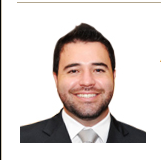 “While in the U.S. there’s more of a donations culture, because these are deducted in income tax, I’ve found out that in Brazil it’s different,” he told me. “Deductions are too small. So, it doesn’t work so much here for local rules.”
“While in the U.S. there’s more of a donations culture, because these are deducted in income tax, I’ve found out that in Brazil it’s different,” he told me. “Deductions are too small. So, it doesn’t work so much here for local rules.”
Still, he believes BCLJ can get enough donations from companies, churches, and individual donors, “but first we need to show people our work. For now we’re establishing our office, starting the work. Then we’ll start hiring people, and this is how we’ll be spreading the word about our work, so that people may get involved.”
The dynamism of Brazil’s growing evangelical community can be seen in their donations. In April 2011, a good friend of Coelho’s father, the televangelist Pr. Silas Malafaia, asked his TV audience to help him pay a debt of about $750,000—or 1.5 million Brazilian reais (BRL)—to broadcast his show all over the country, and even abroad. He asked for about $50,000 toward that debt, and he got it.[2] Months later, in an interview to Piaui Magazine, he commented on the issue. “People in Brazil think all evangelicals are poor and stupid. Evangelicals are donating BRL 100,000, people don’t have a clue of what’s going on within the evangelical world.”[3]
Evangelicals in Politics and the Media
The ACLJ’s move into Brazil is sharply strategic. Brazil is the largest Christian country on the globe except for the United States. And the number of evangelicals in Brazil is growing fast. While 90 percent of the country identified as Roman Catholic in 1980, 21 percent of the population now identifies as Protestant.[4] That number grew 61.5 percent between 2000 and 2010 alone, according to the latest census. The growth is mostly among youth and lower-income people. But while Brazilians tend to call all Protestants “evangelicals,” there remains a small mainline Protestant presence in the country. Most Brazilian Protestants are evangelicals who believe you must be “born again” to be saved. Most Protestants—80 percent—said they were either Pentecostal or charismatic, according to a 2006 survey by Pew Forum on Religion and Public Life.[5] Pentecostals and charismatics are evangelicals who believe that, after your born again experience, you can receive the Holy Spirit through God-given gifts like speaking in tongues, prophesying, or faith healing. Coelho and his family are Pentecostals in the rapidly growing Assemblies of God church.
With at least 30 million followers in Brazil, evangelical representation in politics is also growing and institutionalizing. Their ranks are not unified. As with other Latin American evangelicals, many in Brazil are left-leaning, particularly but not exclusively on economic issues A Pew study found that 51 percent of evangelical leaders in Latin and Central America believed that homosexuals should be accepted by society, compared to 23 percent of evangelical leaders in Europe and nine percent in North America.[6] But the social conservatives seem to have the strongest will to political power.
The Evangelical caucus at the Brazilian National Congress was inaugurated with 26 members during the Constituent Assembly of 1987. There are about 70 deputies (out of 513) in the lower house and three senators (out of 81) currently in its ranks. Most are pastors, bishops, or self-nominated “apostles” from a range of denominations. This caucus, though a minority group, is influential because of its alliance with landowners, entrepreneurs, and other conservative groups represented in the Brazilian Parliament. Together, they make up the majority of the Congress and have been blocking some of the progressive aims of the federal government, especially over the last decade.
Evangelicals provided key support for the rise of Luiz Inácio Lula da Silva and his Workers’ Party to the presidency in 2002. Many continue to provide support to his successor, the current president Dilma Rousseff. But in 2011, led by Rev. Silas Malafaia, the popular Assemblies of God pastor who is friend of the Coelhos, evangelicals forced Rousseff to remove a curriculum promoting LGBTQ understanding from public schools. In the fall 2012 elections, the right-wing Brazilian Republican Party was backed by the Pentecostal Universal Church of the Kingdom of God.[7]
This may come as a surprise to people who know that Brazil is home to the largest gay pride parade in the world. Yet in Brazil, legal rights for gays are restricted, and abortion remains illegal. Twenty-five years ago, during the drafting of the current constitution, advocates failed to have sexual orientation protected in its all-important Article 5, which defends individual rights and freedoms, according to Rafael de la Dehesa, author of Queering the Public Sphere in Mexico and Brazil. Rev. Malafaia mobilized thousands in 2011 to march through the streets of Brasilia, the national capital, to block a bill that would have remedied that.[8]
The Christian Right also won a law explicitly restricting marriage to a man and a woman, which means a ban on adoption by LGBTQ couples. By contrast, civil unions between a man and a woman are explicitly protected in Brazil, as is adoption by single women. While conservatives once opposed these civil unions, they now claim these measures are the basis of Brazil’s legal culture, precluding egalitarian marriage or adoption for same sex couples.
For Prof. Maria das Dores Campos Machado of the Federal University of Rio de Janeiro, who researches religion and politics in Brazil, evangelicals are using politics to take back social arenas that are increasingly juridical. “When you have problems at home or in your personal life you look for a judge or lawyer… but no longer a priest. More and more, even the moral regulators within communities are judges rather than priests or pastors,” she said. “It’s not merely pragmatism. It’s a search for an institutional space for the church in modern society.” The BCLJ seeks to provide new tools to wage that battle on legal grounds.
The Brazilian LGBTQ movement, meanwhile, is also on the offensive in the political arena. For the past eleven years, it has actively promoted an anti-homophobia bill, currently running under Nr. PLC 122/2006, which would make homophobia or discrimination based on sexual orientation or gender identity an aggravating factor in hate crimes, assaults, and hate-speech crimes.
Evangelicals fear that, if enacted, it would interfere with the media channels they use to reach out to the faithful. In Brazil, many pastors and televangelists are, like Pat Robertson, owners of communications empires that include publishers, producers, record labels, and radio and television channels, as well as elaborate portals on the internet. They perceive the so-called anti-homophobia bill as a threat to their “freedom” to keep preaching on national television that homosexuality is an abomination in the eyes of God, and that the homosexual movement is implementing a plan to transform the whole country into Sodom and Gomorrah.
Here and there, LGBTQ groups are filing lawsuits against pastors who use their “freedom of expression” to call on their country, as Rev. Malafaia said after the 2011 pride parade in Sao Paulo, “to beat [literally “stick”] down those gay activists.”[9]
On radio and TV, evangelists are broadcasting more talk shows, preaching programs, and live transmission of services, with pastors, bishops, and apostles promoting political campaigns on the airwaves. Through all the tensions and competition among different denominations—from charismatic Roman Catholics to the most “fast-miracle drive-through” neo-Pentecostal—you hear a common message: the defense of life, traditional values, freedom of expression, and religious freedom. This is in clear opposition to congressional efforts to advance sexual and reproductive rights and LGBTQ and women’s rights.
Evangelical programs, especially those broadcast on TV, clearly follow a North-American style of televangelism. It is not unusual to see U.S. evangelical leaders on Brazilian shows promoting their new best-selling books and DVDs, encouraging people to join the church, or alerting evangelical masses to some “new threat” to the family and tradition, or to religious freedom and freedom of expression in the country or around the world. And the Brazilian audience responds. When Rev. Malafaia asked his audience in 2009 to vote against the approval of the anti-homophobia bill in a poll posted on the Senate’s webpage, there were half a million “NO” clicks in less than a week.
ACLJ also taps the power of Brazil’s evangelical media. When ACLJ’s Executive Director, Jordan Sekulow, appeared on Rev. Malafaia’s Verdade Gospel (Gospel Truth) show to ask Brazilians to “Tweet for Youcef” in support of the release of Pastor Youcef Nadarkhani, imprisoned by Iran, the response reportedly shook the rafters. According to ACLJ and the Brazilian version of the Christian Post, after Sekulow and his wife Anne swept through Brazilian evangelical TV shows, met with groups of pastors, and spoke in pulpits, the total number of people tweeting for Youcef reached more than 3 million, up from 1.1 million.[10] The “Tweet for Youcef” campaign then gained a whole Brazilian webpage in Portuguese, so that Brazilians could send their messages of hope to the Iranian pastor.
Sowing the seeds
As its first director for Brazil, the ACLJ chose a man from one of Brazil’s most important evangelical families, measured in terms of theological, business, and political influence. Filipe Coelho is one of four children of Rev. Silmar Coelho, a Methodist minister. Most of his uncles and aunts preach or otherwise serve evangelical churches. Two of his brothers are also pastors of evangelical churches. Tiago Coelho is cofounder with their father of the Living Church (Igreja Viva) of Taquara, a neighborhood at the northern area of Rio de Janeiro. Lucas Coelho, the younger son, graduated in Youth Ministry and Missions at King College and got a master degree in Divinity at the Emmanuel School of Religion, both in the U.S. state of Tennessee. He once lived in Rio de Janeiro and preached at another branch of the Living Church located in Jacarepaguá, but, Coelho told me, was recently invited to return to the United States to lead a church in Virginia. His only sister is a graphic designer disseminating the word of God in the “gospel design” business. Her company creates anything from gospel-music CD and DVD covers to posters, books, and magazines.
Despite this family background, Filipe Coelho says he doesn’t feel like preaching. He is shy and prefers to act behind the scenes. During our interview in his office, he revealed, “I was a preacher some time ago, but I realized that my work with ACLJ is what I love doing. This is my ministry.”
He is young, with a beautiful smile, kind eyes, and an open and honest expression. When he couldn’t answer some of my questions, he frankly said so. He received me in his comfortable, yet sparce and fairly modern, office. On a bookcase, ACLJ materials share shelves with family photos, a picture of his beautiful wife and cute baby, Bibles, and some books and pictures of his first official mission as part of the ACLJ/BCLJ team, in which he’s seen shaking hands with Brazilian Vice President Michel Temer. Another one shows him with Senator Magno Malta, one of the most right-wing, anti-gay evangelical representatives in Congress, and the participants of that meeting: Vice President Temer, ACLJ director Jordan Sekulow and his wife, Anne, and Rami Levi, the former Israeli Tourism Ambassador for North and South America.
Those pictures were taken during the first official interaction between ACLJ and Brazilian officials, a meeting asking Brazil to support the release of the Iranian Christian pastor Youcef Nadarkhani. Among other decorative items are two miniatures of President Barack Obama and Mitt Romney, the first bigger than the latter. “I tried to find both the same size, but couldn’t,” he said with a smile.
Coelho said he personally was not engaged in politics until ACLJ asked him to be its Director of Operations in Brazil a few months earlier. He spent almost half of his life in the United States, where he graduated in Business and Economics from King College, which is affiliated with both the Presbyterian Church (USA) and the Evangelical Presbyterian Church. “In politics, I just like to see what’s related to my area. I just came back [to Brazil] five years ago but I just started to work on politics three months ago, with BCLJ. I’m still green.”
Coelho was back in time for the 2010 presidential election in Brazil, where Rev. Malafaia, one of his father’s close friends, and other evangelicals brought their concerns about abortion and same-sex marriage into the campaign. People generally credit evangelicals for Rousseff’s victory. Coelho had no opinion on that.
I asked him whether he thought countries could be chosen. He shared his impressions of the United States as a country chosen by God, where Americans can achieve their objectives through hard work, although it is harder for immigrant Brazilians. His own experience working in the United States includes strawberry harvesting—“one dollar for each shoebox full of fruits”—and other “Latino jobs” such as grass-cutting and serving at fast-food restaurants. He said, “The U.S. is a chosen country, an evangelical country, and if Americans don’t take God out of there, God won’t leave.”
But he came back for family and the warmth of his home country. And he is ready to fight for freedom of expression and religious freedom to guarantee democracy there. He joins other conservative evangelicals in seeing these two rights as threatened by Workers’ Party initiatives, such as “prohibiting pastors to preach on radio and TV channels” and the anti-homophobia bill. While democracy is not yet being menaced, he says, the anti-homophobia bill indeed “may” move in that direction by threatening freedom of expression.
With the bill, he explained, “homosexuals are trying to treat homosexuality as if it were a race, while it is really an attitude, a behavior.”
“Let’s say I hire someone to work in my house as a nanny or a maid, and let’s suppose I find out she’s homosexual, and she’s taking care of my baby girl all day. So I think I have the right to decide who to have inside my home. Let’s say I find out she’s homosexual, and I tell her I don’t want her to work within my family anymore. I can be arrested because of that. So there’s no more freedom of expression; in your own home you have to be careful.”[11]
Coelho believes this legislation reflects the strong political influence from the LGBTQ movement in the United States on Brazilian strategy. While in the United States, he heard a lecture about how homosexuals are seeking to become the new Blacks in society, with similar legal protections. He believes Brazilian activists witnessed the LGBTQ rights movement in America and “imported” its tactic to Brazil. This critique is ironic given the group’s own origins.
Widening ACLJ’s Global Impact
ACLJ has two offices in Europe, one in Kenya, and another one in Zimbabwe. The African offices opened most recently. According to Political Research Associates’ 2012 report “Colonizing African Values,” the Center actively intervenes in those countries’ constitution-making processes, aiming to bring about a new legal infrastructure in Africa that enshrines their Christian Right world view. The strategy for entering Brazil seems to be quite similar to what they’ve done in African countries, “by hiring locals as office staff, ACLJ (…) hides an American-based agenda behind (local) faces, giving the Christian Right room to attack gender justice and LGBTQ rights as a neocolonial enterprise imposed” on the country or region, while obstructing critiques of the U.S. Right’s activities.
There are obvious differences. Brazil is by some measures the eighth-largest economic power in the world, with more than 120 years of republican history and nearly two centuries of independence from the Portuguese Crown. It has an active civil society. And it is now exerting its influence over other countries in the political and economic realms and in cultural exchange and technological cooperation, to name but a few examples. Brazil also exports its religious power to other countries in the region, such as Argentina and Ecuador, and to countries of the Community of Portuguese Language Countries, including Angola, Mozambique, and Portugal. Its influence even extends to the United States and Mexico.
Because of this power, the field is not so fertile that American evangelicals can just throw their seeds and watch them sprout like weeds. Local battles for political space and power are taking place right now within the Brazilian Christian community that may determine BCLJ’s fortunes in Brazil. But even where institutional ties across continents are weak, one-on-one relationships seem to have enormous power for sharing strategy and resources.
Jay Sekulow, ACLJ’s chief council, is regularly invited for prominent speaking engagements in Brazil, including the 2011 CIMEB meeting (Interdenominational Council of Evangelical Ministers in Brazil). While Sekulow was unable to attend because of apparent back problems, he continues to receive invitations. Rev. Malafaia’s Victory in Christ invited him to participate in ESLAVEC, a religious leaders’ school program in November 2012.
The Coelhos and the Sekulows are old family friends from the time when Filipe was living in the United States. Pastor Silmar Coelho visits the United States quite often to preach to Brazilians in churches throughout the country. According to Filipe Coelho, it is quite common for his father to spend two or three weeks visiting and preaching to Brazilians in one or more churches a day, in different cities and states.
Rev. Malafaia is also close to both families. The similarities between Jay Sekulow’s and Silas Malafaia’s arguments in defense of the “freedom of expression and religious freedom” are clearly noticeable from their speeches and other texts. Rev. Malafaia’s publisher also released a translation of Louis P. Sheldon’s “The Agenda: The Homosexual Plan to Change [Society]” and distributed it free to all members of federal parliament elected in 2010.
ACLJ’s campaign for the release of Iranian Christian pastor Youcef Nadarkhani, jailed and condemned to death in Iran for the crime of apostasy and preaching Jesus’s gospel, gave the spark to finally open an office in this powerful country. In the struggle for his release, ACLJ identified the importance of winning the government’s support in Brazil, one of the few countries to keep diplomatic relations with Iran. Indeed, ACLJ’s mode of operating in countries around the world is to win high-level political access as a way to broaden its power. Coelho recalled,
ACLJ called us saying that they needed a contact with Brazilian vice president and asked for our help. We obviously offered our support, called Brasilia, and got them a direct contact (via phone) with Vice President Michel Temer. Forty-eight hours later, Jordan and Anna [his wife] were in a meeting with him. From this, they saw how strong evangelical power is within Brazilian politics. They were ‘enchanted’ with Brazilians, because of the favor we did. So they decided to help Brazilian people by opening a Brazilian branch of ACLJ.
In a post dated March 8, 2012, ACLJ Executive Director Jordan Sekulow talks about his impressions from the meeting with Vice President Temer.
Our international team was warmly welcomed by Brazil’s Vice President Michel Temer in his office in Brasilia, the capital of Brazil. Through an interpreter, he told me in Portuguese that the Brazilian government took immediate action when it became aware of Pastor Youcef’s plight just weeks ago.[12]
That isn’t the only high-level meeting Coelho has arranged. Israel’s Foreign Affairs Ministry recently asked his help in setting up a meeting with President Dilma Rousseff. He had another chance to engage with the vice president, this time to request a meeting with the Foreign Minister of Israel. “I asked Vice President Temer if it was possible to set a date for that meeting; he immediately accepted and told his secretary to set it for the following Wednesday at 4:30pm. The Foreign Affairs Ministry of Israel called the president’s office three times to confirm the meeting and was told there was nothing set in the agenda for them,” he told me. “When I called there to check on that, I was told that the meeting was set for me, that I was the one taking the Foreign Affairs Minister of Israel to the presence of Brazilian vice-president. Then the Israelis were also surprised with our influence.”
Coelho continues: “I never thought that I’d be with the Brazilian vice president, but it’s all God’s plans for us. I’m very thankful to God for all this.”
BCLJ counts on the support of other, old family friends of Coelho’s. Rev. Everaldo Dias da Silva, the vice president of the Social Christian Party, and one of the founders of the Evangelical caucus at the Parliament, is one. His son, Filipe Pereira was, at 22, the youngest federal deputy ever elected in Brazil. He’s from Rio de Janeiro and is currently in his second term. Edmilson Dias, one of Everaldo’s brothers, is also engaged in politics and ran for alderman in Rio de Janeiro, but with the Worker’s Party. He was not elected, but he got enough votes to be listed as a substitute.
Coelho shared that Rev. Dias is being tapped by a Brazilian groups of pastors (CIMEB) to run for president in 2014. Christian news sources also mention the federal deputy, Rev. Marco Feliciano, as a popular choice among evangelicals.
Evangelical Splits
The fall of 2012 was the time for local races – mayors and aldermen. Rev. Malafaia followed a statement by the president of the General Convention of the Assemblies of God by saying they had the goal to “make one Assembly of God’s alderman in every city of the country,” which would total about 5,600. An ambitious goal, but even if it fails, it provides a strategy to empower the Assembly of God and the evangelical community as a whole—and to build, region by region, the base for an evangelical candidate in national elections.
Just how many “pastors” ran for local office is impossible to track (though one journalist apparently tried, reaching 5,000), since some churches, such as the Universal Church of the Kingdom of God, led by the powerful Edir Macedo, no longer allow their pastors to register as “pastors” for fear of a political scandal involving their church’s name.
In Rio de Janeiro, the mayor seeking re-election with PMDB—a center-right party that is a coalition partner with the ruling Workers Party—counted on the support of former President Lula and President Rousseff but allied with no less than Rev. Malafaia in his search for evangelical votes against a leftist candidate. A third candidate had a prominent ally “gay-bait” the mayor as no friend of the church.
In São Paulo, a Roman Catholic charismatic mayoral candidate, Celso Russomanno, shot to first place in the polls after a scandal tainted the frontrunner affiliated with the Workers Party. He was the candidate of the Brazilian Republican Party (PRB), a party founded by Rev. Edir Macedo and other leaders of the Universal Church of the Kingdom of God in opposition to the Social Christian Party, mostly supported by Assemblies of God leaders.
Prof. Machado suggests that PRB chose a Catholic candidate and shifted away from Pentecostal candidates after failing to elect Bishop Macelo Crivella to various offices in Rio in previous years. [13] It is remarkable Russomanno became a frontrunner, even if only temporarily, in a city known as one of the most gay-friendly in the world, where the largest LGBTQ Pride Parade takes place every year. It also shows a shift of Rev. Macedo away from the close ties he originally built with the Workers’ Party in the early 2000’s, which won him political space for his media enterprises. His party’s endorsement of Russomanno implies a declaration of political independence from the ruling party.
The elections seem a success for evangelicals. Rev Malafaia’s candidate was elected in Rio de Janeiro. The evangelical caucus at the Rio city hall now totals seven aldermen, which represents 14 percent of the seats. It includes three IURD followers, two Assemblies of God representatives, and two from minor denominations. In São Paulo, twelve evangelicals were elected alderman out of 55 seats on the council. One is a member of the Christian Congregation of Brazil, three are from the IURD, two are from the Assemblies of God, one is Presbyterian, and there are five from other denominations.
Brazil is a country of contradictions. It can produce the Brazilian Carnival and lay the intellectual foundation for the Christian conservative group American Society for Tradition, Family and Property. It has a president who worked on the shop floor and was educated by the Roman Catholic Left, and it is home to right-wing Christian empires such as the Universal Church and the Assembly of God Victory in Christ. This country, just as the poets have said, isn’t for beginners. Whoever wants to navigate its wonderful byways must tread carefully. If BCLJ pursues a legal and diplomatic focus through one-on-one networking, it may someday find a niche for itself among the powerbrokers. But it is organizing in a very competitive environment, one in which evangelicals have already made a vigorous bid for political power and have found ways to generate huge cash resources. So BCLJ’s path to power is far from clear.
[1] Kapya Kaoma, Colonizing African Values: How the U.S. Christian Right Is Transforming Sexual Politics in Africa (Somerville, MA: Political Research Associates, July 2012).
[2] http://noticias.gospelmais.com.br/silas-malafaia-fieis-doem-r100-mil-pagar-divida-18985.html
[3] http://revistapiaui.estadao.com.br/edicao-60/anais-da-religiao/vitoria-em-cristo
[4]Global Christianity: A Report on the Size and Distribution of the World’s Christian Population (Washington, DC: Pew Research Center’s Forum on Religion and Public Life, December 19, 2011). http://www.pewforum.org/Christian/Global-Christianity-brazil.aspx
[5] Spirit and Power: A 10-Country Survey of Pentecostals (Washington, DC: Pew Research Center’s Forum on Religion & Public Life, 2006).
[6] Global Survey of Evangelical Protestant Leaders (Washington, DC: Pew Forum on Religion and Public Life, June 22, 2011), p. 78. http://www.pewforum.org/uploadedFiles/Topics/Religious_Affiliation/Christian/Evangelical_Protestant_Churches/Global%20Survey%20of%20Evan.%20Prot.%20Leaders.pdf
[7] A good English-language story on this is Vincent Bevins, “Brazil’s evangelical churches rewrite the rules of politics,” Los Angeles Times, October 21, 2012.
[8] In English, see Simon Romero, “Evangelical Leader Rises in Brazil’s Culture Wars,” New York Times, November 25, 2011.
[9]Carta Capital, May 14, 2012. http://www.cartacapital.com.br/politica/resposta-ao-pastor-silas-malafaia/
[10] http://aclj.org/iran/brazil-stands-pastor-youcef-nadarkhani
[11] Actually, the PLC 122/2006 text proposes an amendment to Law no 7.716/1989 (Brazil’s antiracism law), including defining prejudice or discrimination against gender, sex, sexual orientation and gender identity as a crime.
[12] http://youtu.be/NwpzKup2k0o
[13]http://sergyovitro.blogspot.com.br/2012/09/um-embate-politico-e-religioso-maria.html





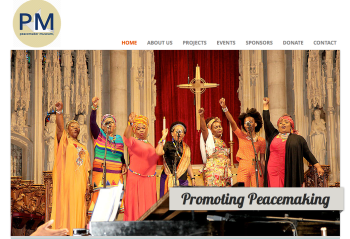




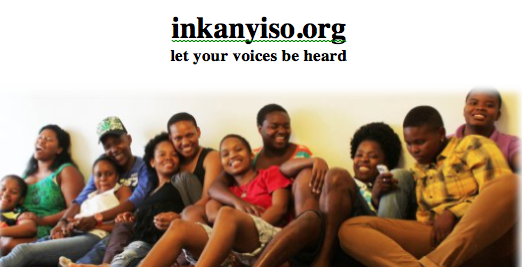







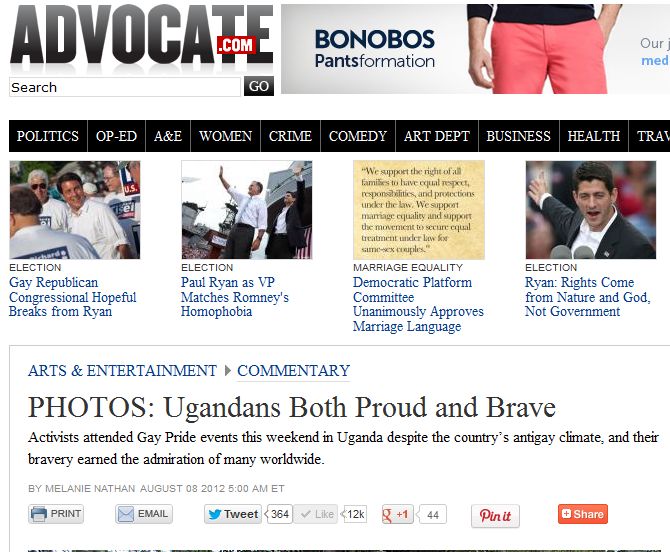
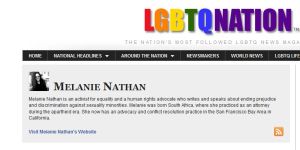
 PoochParkWear customizes hoodies and t-shirts, the good, the naughty, the in between, whether proud or quirky let them be seen. We also offer biker jackets, croc or pleather collars, a variety of collar charms, and our special Zinja beaded collars made by a co-op of HIV-positive South African women, the Sisonke women who weave the beads onto the collars.
PoochParkWear customizes hoodies and t-shirts, the good, the naughty, the in between, whether proud or quirky let them be seen. We also offer biker jackets, croc or pleather collars, a variety of collar charms, and our special Zinja beaded collars made by a co-op of HIV-positive South African women, the Sisonke women who weave the beads onto the collars.

Trackbacks/Pingbacks
[…] Read more […]
[…] SOUTH AMERICAEnormous counter measures need to take place in many South American Countries, as Evangelicals are starting to get the anti-gay genocide messages to powerful congregations in those reasons. http://oblogdeeoblogda.me/2013/01/26/christian-evangelical-right-sets-up-american-style-foothold-in-… […]